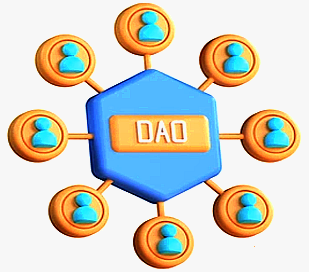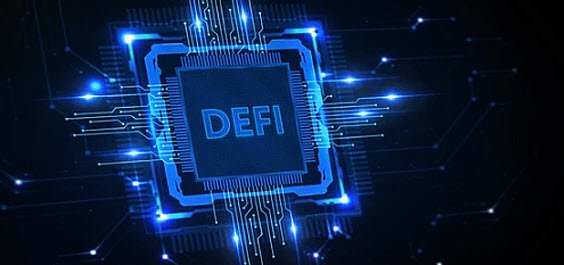Accredited InvestorsAltcoinAnatoli UnitskyAnti-Money Laundering (AML) In CryptoAPIArbitrageArtCoin TokenArticle DirectoryASICAuction Terminology GlossaryBasics of Stock Market InvestingBear MarketBest Crypto Payment Provider In the WorldBitcoinBlockchainBlockchain ConfirmationBlockchain Consensus MechanismBlockchain ForkBlockchain GlossaryBored Ape Yacht ClubBuild a Business That OutperformsBull MarketBuying SkyWay SharesByzantine Fault Tolerance (BFT) ExplainedCasascius CoinCentral Bank Digital Currency (CBDC)Centralized Crypto ExchangeCoinCoinsetCold WalletCollateralCommodity Futures Trading Commission (CFTC)Cross-Chain TechnologyCRUCrypto ExchangeCrypto GlossaryCrypto JokesCrypto Terms to KnowCrypto TickerCryptocurrencyCryptographyCryptojackingCryptounit BlockchainCryptounit GlossaryCryptounit ProgramdApp (Decentralized Application)Dead CoinDecentralized Exchange (DEX)Decentralized Finance (DeFi)Difference Between Bitcoin and EthereumDifferent Ways of Investing MoneyDigital CurrencyDistributed LedgerDo Your Own Research (DYOR)Dollar Cost Averaging (DCA)Dow Jones Industrial Average (DJIA)EncryptionERC-20ERC-721EthereumEvoScentFear Of Missing Out (FOMO)Fear, Uncertainty and Doubt (FUD)Fiat MoneyFNT Fintech CompanyGenesis BlockGlobal Unit PayGlossary of Banking TermsGlossary of Business TermsGlossary of Financial TermsHalvingHODLHot WalletHow Do I Start InvestingHow Rich is Satoshi Nakamoto?How to Create a BlockchainHow to Find Private InvestorsHow to Get Into FintechHow to Program Smart ContractsI Am Thrilled to Be a Part of This Global ProjectInitial Coin Offering (ICO)Initial Public Offering (IPO)Initial Token Offering (ITO)Innovation Basalt TechnologyInnovative Transportation TechnologiesInternational Bank Account Number (IBAN)Investing in Gold Mining StocksInvesting in Gold MiningJagerJoy of Missing Out (JOMO)Know Your Customer (KYC)LedgerLiquidity in CryptocurrencyMaker and Taker Fees in Crypto TradingMarket Capitalization (Market Cap)Meme CoinMetal Credit CardMetaMaskMillenials Now Have Access to Generational WealthMy Best Investment EverNew Digital EvolutionNFT GlossaryOff-Chain TransactionsOn-Chain TransactionsOpen Edition NFTPeer-to-Peer (P2P)Personal Loan GlossaryProbably the Best STO on the MarketProof of Stake (PoS)Real Estate Glossary of TermsReal Estate Investing GlossaryRebase TokenSecurities and Exchange Commission (SEC)Security Token ExchangesSecurity Token Offering (STO)Soulbound Decentralized Identities for Security TokensSoulbound ID Launch by Stobox Proves a SuccessSoulbound TokensStoboxStock Market GlossaryTestimonialsTether Platform and Token (USDT)UnitEx ExchangeUnitsky String TechnologiesUNTBUSDUValidatorWe Started Investing When We Were 25What are Blue Chip NFT?What are Blue Chip Stocks?What are Crypto Assets?What are Crypto Smart Contracts?What are CryptoPunks NFT?What are Digital Assets?What are Digital Collectibles?What are Gas Fees?What are Gas Wars?What are Hashmasks?What are Non Fungible Tokens?What are Non-Sufficient Funds (NSF)?What are Soulbound Tokens (SBT)?What are Stablecoins in Crypto?What are Transactions Per Second (TPS)?What are Utility NFTs?What are Utility Tokens?What Does Burning Crypto Mean?What Does Diamond Hands Mean?What Does Paper Hands Mean?What Does To The Moon Mean?What Does WAGMI Mean?What Happened to Satoshi Nakamoto?What is a 51% Attack?What is a Baby Boomer?What is a Backlink?What is a Banner?What is a Barcode?What is a Bid-Ask Spread in Crypto?What is a Block in Blockchain?What is a Block Reward?What is a Blockchain Address?What is a Blockchain Node?What is a Blockchain Oracle?What is a Blog?What is a Bond?What is a Bot?What is a Broker?What is a Business Accelerator?What is a Cash Cow?What is a Commercial Bank?What is a Commodity?What is a Con?What is a Credit?What is a Credit Limit?What is a Credit Rating?What is a Crypto Airdrop?What is a Crypto Bridge?What is a Crypto Scam?What is a Crypto Token?What is a Crypto Wallet?What is a Crypto Whale?What is a Crypto Winter?What is a Cryptocurrency Public Ledger?What is a Cryptocurrency Roadmap?What is a DAO?What is a Dark Pool?What is a Day Trader?What is a Dead Cat Bounce?What is a Default?What is a Derivative?What is a Digital Credit Card?What is a Fiscal Quarter?What is a Fungible Token?What is a Governance Token?What is a Grace Period?What is a Hard Fork?What is a Hot Wallet?What is a Hybrid Blockchain?What is a Hybrid PoW/PoS?What is a Joint Account?What is a Market Cap?What is a Merkle Tree in Blockchain?What is a Mining Farm?What is a Nonce? What is a PFP NFT?What is a POS System?What is a Prepaid Card?What is a Private Blockchain?What is a Private Key?What is a Public Blockchain?What is a Public Key?What is a Reserve Currency?What is a Ring Signature?What is a Routing Number?What is a Rug Pull in Crypto?What is a Safe Deposit Box?What is a Satoshi?What is a Security Token?What is a Seed Phrase?What is a Shitcoin?What is a Sidechain?What is a Soft Fork?What is a Spot Market?What is a State Bank?What is a SWIFT Code?What is a Tax Identification Number (TIN)?What is a Time Deposit?What is a Transaction Account?What is a Variable Interest Rate?What is a Virtual Assistant (VA)?What is a Virtual Card?What is a Virtual Currency?What is a Visa Card?What is a Whitelist in Crypto?What is a Whitepaper?What is Accounts Payable (AP)?What is AMA in Crypto?What is Amortization?What is an Accrual?What is an ACH Transfer?What is an Actuary?What is an Addendum?What is an Algorithm?What is an Angel Investor?What is an Annuity?What is an Asset?What is an ATM?What is an Atomic Swap?What is an Audit?What is an Avatar?What is an EIN?What is an Embargo?What is an Entrepreneur?What is an IDO (Initial Dex Offering)?What is an Interest Rate?What is an Internet cookie?What is an Investment Bank?What is an NFT Drop?What is an NFT Floor Price?What is an Ommer Block?What is an Orphan Block?What is an Outstanding Check?What is an Overdraft?What is Artificial Intelligence (AI)?What is B2B (Business-to-Business)?What is B2G (Business-to-Government)?What is Bartering?What is Bitcoin Dominance?What is Bitcoin Pizza Day?What is Blockchain Immutability?What is Blockchain Used For?What is BRICS?What is Business-to-Consumer (B2C)?What is C2C (Customer to Customer)?What is Capitalism?What is Catfishing?What is CFD Trading?What is Check Kiting?What is Cloud Mining?What is Communism?What is Content Marketing?What is Decentralization in Blockchain?What is DeFi in Crypto?What is Delisting?What is Depreciation?What is Digital Marketing?What is Diversification?What is Double Spending?What is Dumb Money?What is Dumping?What is Earnings Per Share (EPS)?What is Economics?What is Email Marketing?What is Equity?What is Etherscan?What is Fintech?What is Foreign currency?What is Forex?What is Fundamental Analysis (FA)?What is GameFi?What is Generative Art NFT?What is Gwei?What is Hard Currency?What is Hash Rate?What is Hashing in Blockchain?What is Inflation?What is Initial Game Offering (IGO)?What is Interest?What is Interest Income?What is Mainnet?What is Mastercard?What is Metaverse in Crypto?What is Mining in Cryptocurrency?What is Minting NFT?What is Mobile Banking?What is Money Laundering?What is NFT Alpha?What is NFT Metadata?What is NFT Rarity?What is NGMI Meaning?What is Nominal Interest Rate?What is Online Banking?What is Open-End Credit?What is OpenSea NFT Marketplace?What is Personal Identification Number (PIN)?What is Play-to-Earn?What is Polygon?What is Proof of Authority (PoA)?What is Proof of Work (PoW)?What is Public Key Cryptography?What is Pump and Dump?What is Quantum Computing?What is Refinancing?What is Retail Banking?What is Ripple?What is Sharding?What is Slippage in Crypto?What is Smart Money?What is Solvency?What is Soulbound ID?What is SSL?What is Staking in Cryptocurrency?What is Technical Analysis (TA)?What is Testnet?What is the Ask Price?What is the Better Business Bureau (BBB)?What is the Bid Price?What is the Dark Web?What is the InterPlanetary File System (IPFS)?What is the Gold Standard?What is the Lightning Network?What is the Prime Rate?What is the Sandbox?What is the Secondary Market?What is the World Bank?What is Tier 1 Capital?What is Tokenomics?What is TRC-20?What is Universal Banking?What is Unspent Transaction Output (UTXO)?What is Usury?What is Volatility in Crypto?What is Wash Trading?What is Web3?What is Whisper?What is XRP?What is Zero-Knowledge Proof (ZKP)?Who is Beeple?Who is Satoshi Nakamoto?Who is Vitalik Buterin?Why Tokenization is a Safe HavenWhy You Should Try Your Hand at Trading
What is a Governance Token?
- Home
- Blockchain Glossary
- What is a Governance Token?
In the world of blockchain technology, governance tokens have become a popular tool for promoting decentralized decision-making and ensuring community participation in the management of projects.

These tokens play a crucial role in both decentralized autonomous organizations (DAOs) and decentralized finance (DeFi) projects, and their importance is only increasing. In this chapter, we will explore what governance tokens are, how they work, and why they matter.
What is a Governance Token?
A governance token is a type of cryptocurrency that represents ownership in a blockchain project and grants the holder the right to participate in the decision-making process of that project. These tokens are typically used in DAOs and DeFi projects to give users a say in the project's management and direction. Holders of governance tokens can use them to vote on proposals, elect representatives, and make other decisions related to the project's governance.
Governance tokens are designed to promote decentralization, transparency, and community participation in blockchain projects. They allow users to have a direct say in the management of the project, rather than leaving it in the hands of a centralized authority or a small group of stakeholders. By giving users a voice in the decision-making process, governance tokens help to ensure that blockchain projects are managed in a fair and democratic way.
How Do Governance Tokens Work?
Governance tokens work by using a smart contract system that allows users to vote on proposals and other decisions related to the project's governance. These proposals are typically submitted by community members, and can include things like changes to the project's code, updates to its governance structure, or decisions related to its finances.
When a proposal is submitted, holders of governance tokens are able to vote on it using their tokens. The number of tokens held by a user determines the weight of their vote, with users who hold more tokens having a greater say in the decision-making process. Once the voting period has ended, the proposal is either approved or rejected based on the outcome of the vote.
Why Do Governance Tokens Matter?
Governance tokens matter because they play a crucial role in promoting decentralization and community participation in blockchain projects. By giving users a direct say in the management of a project, governance tokens help to ensure that decisions are made in a fair and democratic way. This can help to build trust and confidence in the project, and can also help to attract new users and investors.
In addition, governance tokens can also be used as a way to incentivize users to participate in the project's governance. Some projects offer rewards or other incentives to users who participate in the decision-making process, which can help to increase participation and engagement.
Pros and Cons of Governance Tokens
Governance tokens offer several advantages, such as reducing misalignment of interests commonly seen in centralized governance. By allowing for decentralized governance through the use of governance tokens, management power is transferred to a broad community of stakeholders, promoting alignment between user and organization interests.
In addition to promoting alignment of interests, governance tokens can also foster active, collaborative, and close-knit communities. Token holders are incentivized to vote and improve the project, with one token typically equaling one vote. This lays the groundwork for fair and equitable decision-making, with any token holder able to initiate a proposal for a vote. All vote details are transparent, reducing the likelihood of cheating.
However, one significant challenge with governance tokens is the "whale problem". If a few individuals or entities, known as whales, hold a large percentage of the overall supply of a governance token, they could sway the voting process in their favor. Therefore, it is essential for projects to ensure that token ownership is truly decentralized and evenly distributed.
Even if governance tokens are distributed fairly and broadly, there is still no guarantee that majority decisions will always be best for the project. One-person, one-vote election systems have a mixed track record, with some instances where governance token holders voted to benefit founding teams and large investors at the expense of the wider community.
The Future of Governance Tokens
Governance tokens, originally developed within the crypto space, have the potential to expand into various sectors beyond finance. The Web3 movement presents an opportunity for governance tokens to contribute to the creation of a decentralized internet, while the gaming industry and others may also adopt this governance model.
As governance tokens continue to grow in popularity, they will evolve to address emerging issues. New mechanisms may be developed to tackle the whale problem, and novel ways to enhance the voting process may emerge, such as innovative methods of delegating votes. The governance token space is likely to become more complex as new innovations are introduced.
However, the future of governance tokens could also be impacted by regulatory changes. Certain governments may classify these tokens as securities, subjecting them to strict regulations and potentially impacting their functionality. This is a factor that will need to be monitored as the use of governance tokens expands into new sectors.
Related Articles

What is a DAO?
In a DAO, decisions are made by its members through a consensus mechanism, usually involving voting. Members are not necessarily identified by their personal information, but by their...

Decentralized Finance (DeFi)
DeFi is a movement that encourages the use of decentralized networks and open source software to produce various sorts of financial services and products. The concept is to create and...

What is a Crypto Whale?
Whales, being holders of large amounts of cryptocurrency, can pose a challenge for the crypto market due to the concentration of wealth in their accounts. When coins are not...
- Home
- Blockchain Glossary
- What is a Governance Token?